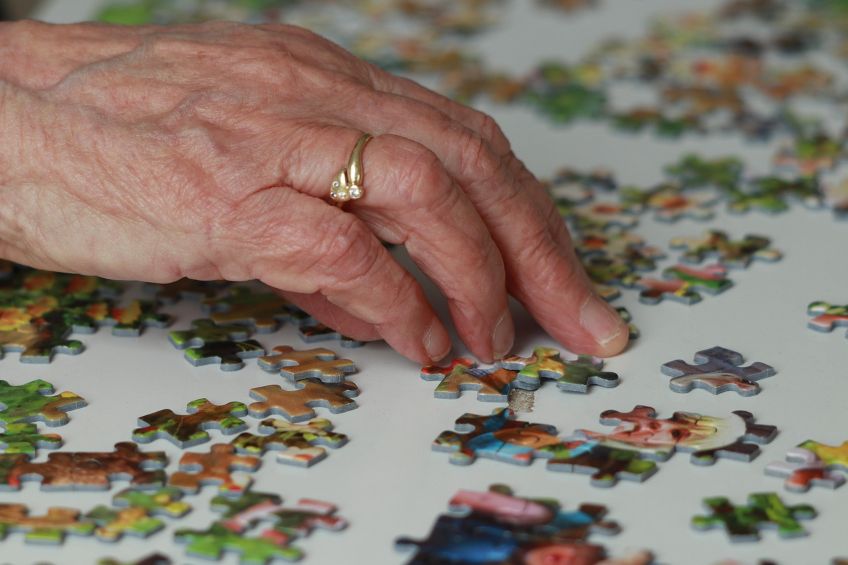Living with tremors or movement challenges can significantly impact various aspects of everyday life, from getting dressed to preparing meals. Small adjustments to routines can make a noticeable difference in maintaining comfort and independence. Building structure into each day encourages smoother movement, steadier coordination, and a stronger sense of control. Developing a plan that fits personal needs and abilities is key to keeping life manageable and active.
Morning Techniques to Reduce Stiffness and Tremors
Morning stiffness and tremors are common, often making the start of the day more difficult. Establishing a steady and practical morning routine helps ease these challenges while promoting a sense of calm and confidence.
Applying warmth, such as a bath or shower, can relax muscles and improve flexibility. Allowing extra time to get ready prevents strain and reduces the risk of falls. Simple stretching, like moving the neck, shoulders, and ankles before getting up, gently prepares the body for activity. Practising safe standing movements from a seated position can also maintain balance.
Medication routines are crucial for managing symptoms effectively. Setting reminders or using pill organisers helps ensure consistency. Dressing aids, such as elasticated clothing and supportive footwear, make the process easier and safer. Sitting down while dressing can help maintain balance and comfort.
For individuals or families seeking more structured support at home, professional services such as specialist Parkinson’s home care can provide tailored assistance with morning routines, helping to reduce stress and promote independence.
Nutrition Strategies That Support Movement Control
Good nutrition plays an essential role in supporting overall wellbeing for those managing tremors or movement difficulties. While diet cannot remove symptoms entirely, thoughtful meal planning can help regulate energy and promote steadier movement.
Balancing protein intake throughout the day is often beneficial, especially for people using certain Parkinson’s medications. Consulting a dietitian or GP before making dietary changes ensures the plan suits individual needs. Planning daily activities during times of higher energy may make tasks more achievable.
Hydration is equally important. Using cups with two handles, spill-proof lids, or straws can help people with hand tremors drink more comfortably. Keeping drinks accessible around the home and tracking intake encourages steady hydration.
A balanced diet that includes fruits, vegetables, whole grains, and sources of omega-3 fats, such as mackerel and sardines, supports brain and nerve health. Some people find that limiting caffeine or alcohol helps reduce symptom flare-ups. Keeping a brief food diary can reveal patterns that guide small, helpful adjustments.
Professional caregivers trained in Parkinson’s Home Care can provide additional guidance on meal planning and nutrition, ensuring individuals receive the optimal balance of nutrients for their health and well-being.
Home Modifications That Prevent Falls and Improve Mobility
Simple home changes can make daily life safer and easier. Reducing risks and improving accessibility enable people with mobility conditions to remain independent for longer.
Grab rails near toilets and showers support safer transfers. Non-slip mats, shower chairs, and lever taps also help improve comfort and confidence in the bathroom. In the kitchen, keeping commonly used items at counter height reduces bending and reaching. Useful aids such as jar openers, chunky cutlery, or kettle tippers can make food preparation easier and safer.
Removing loose rugs, clearing walkways, and ensuring rooms have bright lighting helps reduce fall risks. Marking narrow spaces or doorways with tape or installing handrails can make moving between rooms smoother and more secure. Placing stable chairs for rest breaks encourages pacing and reduces fatigue.
Thoughtful home adjustments can significantly enhance the quality of life. Combined with consistent Parkinson’s Home Care support, these changes help individuals manage more comfortably in familiar surroundings.
Afternoon and Evening Activities for Symptom Management
Maintaining gentle activity during the day promotes flexibility and comfort. Light afternoon exercises, such as seated leg lifts or arm stretches, improve circulation and joint mobility. Listening to music during movement can help maintain rhythm and encourage participation. Working alongside a support worker or friend adds social connection and motivation.
Hobbies that engage both mind and hands, like reading or light crafts, provide stimulation while strengthening fine motor skills. Social contact during the afternoon or early evening reduces feelings of isolation and supports mental wellbeing.
Creating a calm evening routine helps prepare the body for rest. Turning off screens, dimming lights, and maintaining a consistent bedtime schedule can ease restlessness and improve sleep quality. Discussing ongoing sleep difficulties with a healthcare professional may lead to adjustments in medication or bedtime arrangements for greater comfort.
Consistency between activity, rest, and social engagement supports a balanced day. Parkinson’s Home Care services often assist with maintaining these routines, providing reminders, companionship, and encouragement as needed.
Encouraging Independence Through Routine and Support
Combining structure, nutrition, safety, and gentle exercise creates a balanced approach to managing tremors and movement changes. These elements work best when adapted to individual needs, with support from carers, family, or professionals. Establishing daily patterns helps build confidence, reduces anxiety, and encourages independence.
Families can play a key role in maintaining steady routines and monitoring when extra help might be needed. Support organisations and charities also offer resources, guidance, and community connections for both individuals and carers. Professional care services specialising in Parkinson’s Home Care can create tailored plans that adapt as needs evolve, ensuring that individuals stay comfortable and secure at home.
Taking the Next Step Toward Support and Stability
Professional support can make a meaningful difference to daily comfort and confidence. If you or a loved one would benefit from structured assistance, seeking professional Parkinson’s Home Care can help create a stable, reassuring environment that meets personal needs. Care providers offer flexible solutions designed to promote safety, independence, and peace of mind. Taking the next step towards expert guidance can help you live more comfortably, maintain your routines, and focus on what matters most.





